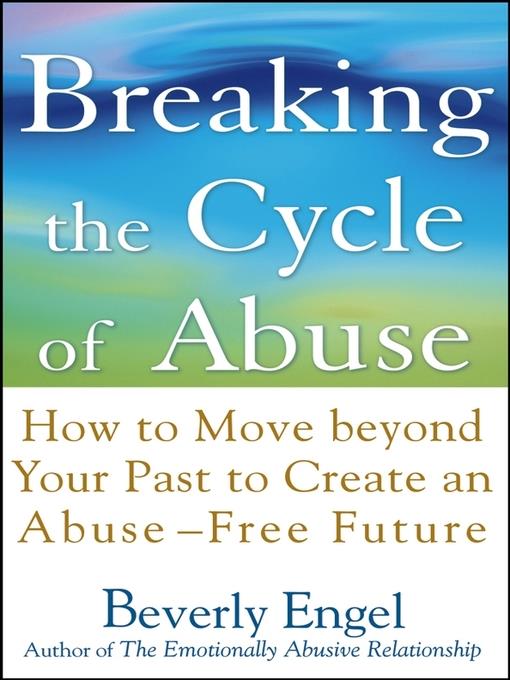
Breaking the Cycle of Abuse
How to Move Beyond Your Past to Create an Abuse-Free Future
کتاب های مرتبط
- اطلاعات
- نقد و بررسی
- دیدگاه کاربران
نقد و بررسی

November 1, 2004
According to Engel, "in the past twenty-five years studies on abuse and family assaults strongly suggest that abused children become abusers themselves," yet victims often don't receive any treatment until their repetition of the abuse is already underway. In this clear, empathetic self-help book, Engel aims to stop that cycle by teaching readers to remember the past truthfully, to identify and manage their emotions, and to recognize the characteristics of abusive relationships. An experienced psychotherapist and prolific author (The Emotionally Abused Woman; Loving Him without Losing You, etc.), Engel is also an abuse survivor herself. Her attitude towards her readers is gentle and understanding; she clearly knows firsthand how difficult victim and abuser patterns are to break. Readers are expected to perform a good deal of homework aiming at self-discovery: answering simple questions, writing down their memories, tracing family patterns, etc. Some may argue that Engel presents the most crucial advice--what to do if you've already become abusive--too late in volume, by which point an abuser may have dropped the book. But the middle chapters--on shame and its manifestations, on anger, sorrow and fear--are some of the best, especially when Engel delves into the effects of physical, sexual and emotional abuse on children. Though she deals thoroughly with the psychology of victims, Engel concentrates far more than in her earlier books on trying to reach violent and sexual offenders. Violation begets violation, she says. Parental attitudes and behavior, be they cruel, indifferent or supportive, are passed on to later generations. This book is an excellent choice for readers who come from an abusive past and are struggling to make a brighter future for themselves and their families.

November 15, 2004
According to Engel, "in the past twenty-five years studies on abuse and family assaults strongly suggest that abused children become abusers themselves," yet victims often don't receive any treatment until their repetition of the abuse is already underway. In this clear, empathetic self-help book, Engel aims to stop that cycle by teaching readers to remember the past truthfully, to identify and manage their emotions, and to recognize the characteristics of abusive relationships. An experienced psychotherapist and prolific author (The Emotionally Abused Woman; Loving Him without Losing You, etc.), Engel is also an abuse survivor herself. Her attitude towards her readers is gentle and understanding; she clearly knows firsthand how difficult victim and abuser patterns are to break. Readers are expected to perform a good deal of homework aiming at self-discovery: answering simple questions, writing down their memories, tracing family patterns, etc. Some may argue that Engel presents the most crucial advice--what to do if you've already become abusive--too late in volume, by which point an abuser may have dropped the book. But the middle chapters--on shame and its manifestations, on anger, sorrow and fear--are some of the best, especially when Engel delves into the effects of physical, sexual and emotional abuse on children. Though she deals thoroughly with the psychology of victims, Engel concentrates far more than in her earlier books on trying to reach violent and sexual offenders. Violation begets violation, she says. Parental attitudes and behavior, be they cruel, indifferent or supportive, are passed on to later generations. This book is an excellent choice for readers who come from an abusive past and are struggling to make a brighter future for themselves and their families.
Copyright 2004 Library Journal, LLC Used with permission.

























دیدگاه کاربران